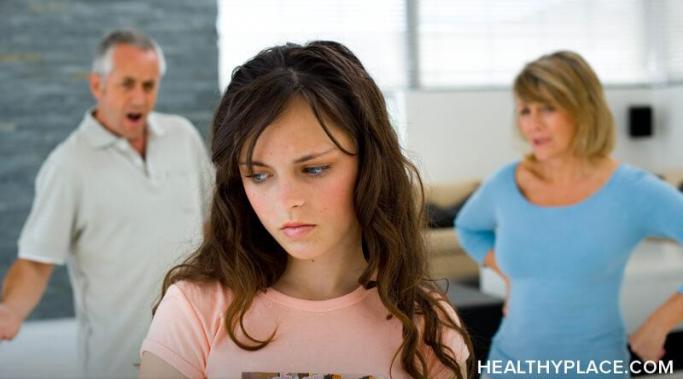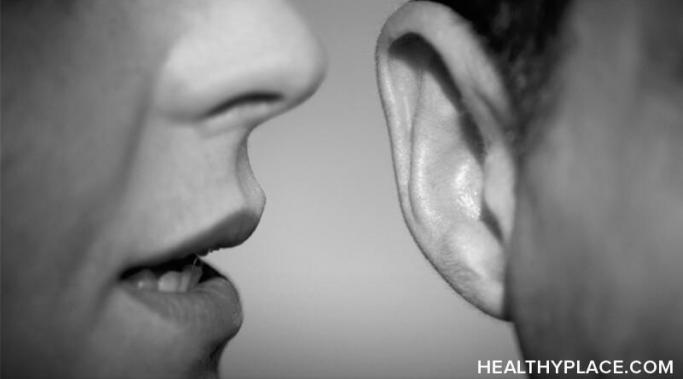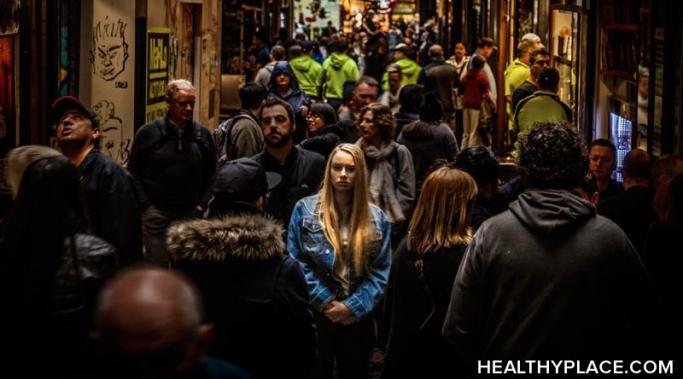Blogs
When dealing with a crisis, it can be difficult to stay calm and anxiety-free. After all, “crisis” implies catastrophe, disaster, and sometimes even near-Armageddon. In reality, a crisis can be of any size or nature and is something that causes distress to those involved. Facing any type of crisis can create new anxiety where none existed before, and it can aggravate existing anxiety and anxiety disorders. While it’s natural to experience heightened anxiety during a crisis, it’s not a rule. You can stay calm and anxiety free in a crisis. Here’s how to do it.
How did you get on the right routine of bipolar medication? This is a question I get on a daily basis.
I published my first post for the Coping with Depression blog here at HealthyPlace a full year ago. Today, I publish my last. Since that first, scary click of the Publish button, I've read fresh takes on my coping ideas, and I've challenged myself to think of depression in new ways. My experience writing for the Coping with Depression blog has rocked my tiny, blue world. I've realized a couple of valuable things during my year with HealthyPlace.
The future of mental health education is, unsurprisingly, a popular topic here at HealthyPlace. That’s because it’s largely absent from the national curriculum, even though nearly 20% of children show signs of mental illness each year. 1 Approximately 60% of those children don’t receive mental health treatment. The future of mental health education is important.
There’s a phrase that eating disordered people love to hear. We must be careful because this phrase can validate the person’s disorder. When you’re struggling with an eating disorder, food and body image weigh on you all day long. Your mind whispers and screams commands about food or exercise and berates you when you can’t follow them perfectly. You have a slew of unrealistic expectations for yourself to live up to. Then you must factor in other people. Sometimes the people who love us can unintentionally validate our eating disorder with this one phrase that eating disordered people love to hear.
When I was a child dealing with mental health stigma, I didn't really know what it was that set me apart. As a young adult, I have a better perspective on the mental health stigma your child faces. Although I’m not a parent or guardian of a child facing mental health stigma, I have a clear memory of how stigma affected me as a child. Plus, I've seen what my parents have gone through as I lived with mental illness at a young age. I also read posts and hear from parents and guardians who have children that suffer or live with mental health problems and it's heartbreaking to witness as they grapple with trying to help their child and feeling powerless to do so. So when I can, I try to help. I hope some of the tips that follow are ones you find helpful as you navigate your child’s mental illness and the potential mental health stigma your child can face.
My posttraumatic stress disorder (PTSD) brain keeps me busy to avoid pain. Your PTSD brain could help you avoid pain in a very different way. The diversity found in the coping mechanisms people develop in posttraumatic stress disorder (PTSD) continues to surprise me. In my case, constant thinking was one way my PTSD brain protected me.
Have you ever wondered what it's like to hear voices? Hearing voices is a classic symptom of schizophrenia. The bad news is, they're sheer torture. The good news is, medication can help--I haven't heard voices in several years. But for those of you who wonder, here's what it's like to hear voices.
Disruptive mood dysregulation disorder (DMDD) outbursts erupt multiple times a week because a child with DMDD is persistently angry and irritable. DMDD outbursts are tantrums that are way out of proportion to the situation. As parents, they are tough to watch, but preventing them seems impossible. Keeping everyone in the family safe is a priority, and when it's all over, DMDD outbursts leave your family emotionally exhausted.









